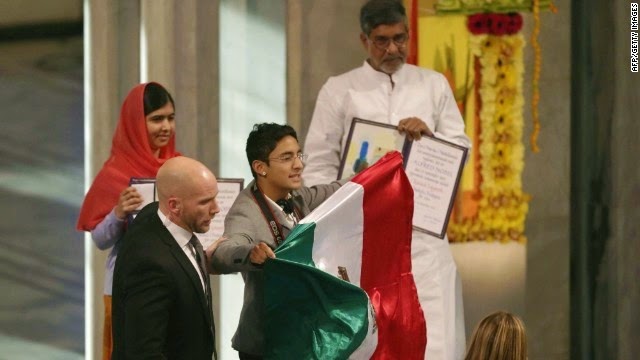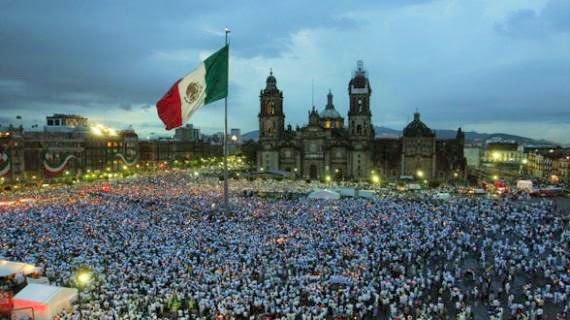The
question of how I identify myself—ethnically-speaking—is a persistent one. Readers often corner me, trying to get me to pick only one ethnicity. I believe this is because every booklover understands
that a writer’s sense of belonging tints the lens through which he or she tells
a story. Moreover, readers are aware
that a writer’s culture plays a vital role in his or her obsessions.
In my
case, these things are absolutely true.
When
it comes to defining my identity, I’ve swung from a pendulum of cultures depending on a given moment of my life. During my first eleven years, spent in Los
Angeles, I was an “American”—without question or apology. My upbringing in California, and my being a
product of the public school system, heavily filtered the way I viewed and
interpreted the world. Although I was
aware that my parents’ roots made me unique, Nicaragua was a part of their
world, not mine. My blood—the blood of a
native Californian—ran red, white, and blue.
And although I was of Latino descent, I considered myself part of mainstream
“America.” As a result, I saw the world
the way most “Americans” did.
Then
my family moved to Nicaragua.
Because
my parents couldn’t afford to enroll me in that country’s only U.S.-accredited
school, they placed me in an all-boys, Spanish-speaking, Catholic school. But what at first seemed a tragedy—to not to
be able to continue my education in the American way—turned out to be a blessing,
a stroke of great fortune.
If I
had attended the U.S. school, I would have remained an “American,” and I would
have never become acculturated into the world and stories of my ancestors.
In my
new school I was the only English-speaking student. While growing up in the States I had only
spoken Spanish with relatives; because of this my skills were childlike: my
vocabulary was limited and my knowledge of grammar non-existent. During my first months in Nicaragua, the way I
spoke elicited howls of laughter from my new classmates. The dread of being teased forced me to adapt,
otherwise I would live the life of an isolated cultural freak.
Thankfully,
within six months (Oh, the prowess of childhood to adjust to new circumstances!),
I had embraced the language, the culture, the history, and the people of my
heritage. And after only a couple of
years, I had, for the purpose of self-identification, become fully Nicaraguan.
A Nicaraguan:
this was how I would identify myself for decades to come. It wasn’t until I was in my late-thirties, nearly
twenty years after I had returned to the States, that I started to acknowledge
that an “American” also dwelled within me.
Although
in retrospect it seems logical, as well as inevitable, the designator Nicaraguan-American eventually became my identifier. And the
benefits of accepting this hyphenated identity have far outweighed any losses: it
is as a Nicaraguan-American that I started to believe that, as a writer, I had stories
to share through the lens with which I now viewed the world.
But another
shift has taken place in my self-identification, a slight yet significant
change. I approach my thirteenth year of
living in Panama. While I could never
consider myself Panamanian (not because I don’t wish to, but at my age the
honor eludes me), I am once again embracing another culture, another history,
another people. Both my wife and I are
happy to call this nation our home, and our stay here seems permanent.
Perhaps
I will never see as clearly through my Panamanian lens as I do through the
American and Nicaraguan ones, but I now understand Panamanians. (And isn’t this what a writer of fiction
does, inhabit the identities of his or her characters’ so their actions are
utterly believable within a determined cultural context?)
So, where
am I now regarding my ethnic identity?
I’m
honest when I reply that I am not entirely sure. At this point in my life, pinpointing the
manner in which I categorize myself is no longer of great importance to me. What I do know is that when I visit
California, I no longer feel Californian; when I visit Nicaragua, I no longer
feel Nicaraguan; and when I walk the streets of Panama, I am certain I am not Panamanian. It seems then that, today, I’m an outsider
wherever I am.
But this
tribal limbo is not altogether unpleasant.
In fact, I quite enjoy the distance I’ve acquired through the years
regarding my need to subscribe to a particular culture. It appears that in the process of becoming a
writer, I’ve freed myself of the calling for a mass identity. I now treasure being an individual. And through my writings, my ability to accept
those of other cultures has evolved, and this is leading me to feel a genuine
kinship with every human being I encounter.
(Credit for Los Angeles photo: The Global Program)
























